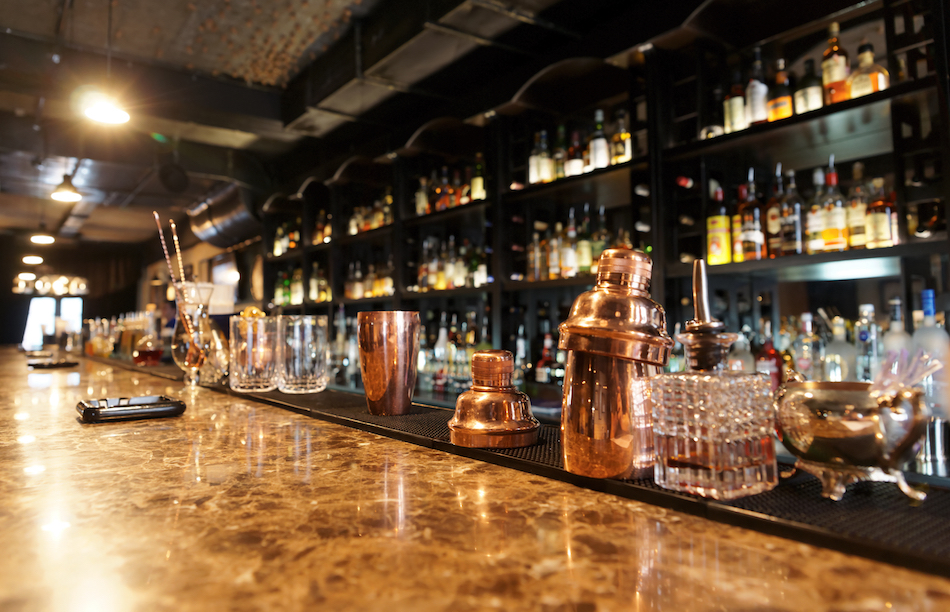Article courtesy of PLAN (Professional Liability Agents Network)
Picture this scenario: Your company celebrates its most profitable year ever by throwing a gala holiday party. Festivities begin with a cocktail reception at company headquarters, followed by a lavish dinner at a nearby 5-star restaurant. Invitations were sent to employees, key clients and their spouses/significant others.
At the reception, recognition awards and bonus checks are handed out to top performers. Marketing Manager Todd Wilson is the star of the evening, receiving accolades for bringing in more business than anyone has ever generated in the history of the firm. He is saluted by the CEO and praised by the new mega-client who he brought onboard with three large commercial projects.
The alcohol is flowing. Staffing the bar is your company’s shipping and receiving clerk, Bob, who had a few years’ experience as a bartender during college and volunteered to pour. A few platters of nuts, cheeses and crackers are provided, but nothing substantial. (You don’t want folks filling up on snacks when you’re about to dine at the best restaurant in town.)
Todd is having a great time. They’re serving his favorite Scotch whiskey. Greetings of “Cheers,” and “Salud,” fill the air as co-workers bring Todd one Scotch on the rocks after another.
As the dinner hour approaches, Bob issues a last call. Todd has one more for the road, and teeters toward the front door. In the lobby, he crosses paths with his new mega-client’s wife, Ursula. Feeling frisky and uninhibited, Todd puts his arm around her waist and plants a kiss right on her lips. “See you at the restaurant,” he smiles, patting Ursula on the behind.
Todd, jumps into his car and drives to the restaurant. On the way there, he decides he needs a pack of cigarettes. He swerves into the parking lot of a mini-mart, sideswipes a delivery truck and rear-ends a customer’s car. The driver howls in pain, clutching the back of her neck.
So, what are your company’s risks? Are you liable for Todd’s actions? If so, will the damages be covered by your current insurance policies? What could and should your company have done to avoid this disastrous display? Let’s look at some facts related to liquor liability for a host who provides alcohol.
The Basics Regarding Liquor Liability
Generally speaking, under liquor liability laws (in effect in most states and provinces in the U.S. and Canada, as well as Puerto Rico), anyone who provides alcoholic beverages to someone who is intoxicated or under age is liable for any property damages or bodily injuries that result from the intoxication. That holds true whether those damages are accidental (e.g., an auto collision or a slip-and-fall) or intentional (e.g., a bar fight).
Historically, this liquor liability was applied mostly to taverns, bars, restaurants, sporting arenas, hotels, and other establishments that sell alcoholic beverages as a profit-making venture. Today, however, that liability is almost equally applied to “social hosts”: organizations or individuals who provide alcohol to others in their homes or at businesses functions but that don’t regularly sell alcoholic beverages as a profit-making venture. This would include companies that hold holiday parties or similar celebrations and events where alcohol is served. In our holiday party scenario, your company had a responsibility to be aware of Todd’s intoxicated state, cut off his drinking and not allow him to drive intoxicated.
Social events that include employees, clients, suppliers, and spouses/significant others are major morale boosters and build camaraderie among those key to company success. Obviously, alcoholic drinks aren’t mandatory, but they can add to the festive atmosphere.
Six Tips to Limit Risks
How can you serve alcohol at company functions without significantly adding to your liabilities? Here are a few tips to consider:
- Appoint a party planning team. Have at least one member of management serve as chair. Include training to recognize signs of intoxication. (Some states/provinces offer certification programs for training nonprofessional bartenders and servers.) Have planning team members serve as watchdogs during the party.
- Leave it to the pros. It’s typically best to hire a professional bartending service to pour alcohol from behind bar stations. Professional bartenders are trained to pour reasonable drinks, know the signs of intoxication, check ages on IDs, and cut off drinkers who are reaching their limit. Ask for a certificate of insurance to show that the bartending company is adequately insured for liquor liability. Also ask to be named an additional insured on its policy and seek an indemnity for your firm. Review any indemnification agreement to make sure it doesn’t transfer risk back to you.
- Have the party offsite. Rather than serving alcohol on company premises, have the party at a hotel, restaurant, tavern or other outside establishment. This transfers much (but not all) of the liability to the establishment. Avoid making employees drive to more than one venue, like our party scenario showed.
- Provide transportation. One of the greatest liquor liabilities for social hosts is an intoxicated employee causing significant property damage and/or physical injury in an auto accident. Offer all employees free transportation at the end of the party. This could be a taxi, a shuttle bus, a ride share like Uber or Lyft, or designated drivers from among non-drinking employees. Do not use company vehicles: Outside services are best for transferring risk. Insist that any employee showing signs of intoxication not get behind the wheel. Consider offering a guestroom for the night if the event is at a hotel.
- Set the tone beforehand. In all written and verbal party invitations and announcements, let employees know that responsible, moderate drinking is the rule. Consider offering a limited number of drink tickets to attendees. Emphasize to management that they should lead by example and not overindulge.
- Offer tasty alternatives. Have plenty of appetizers, high-protein snacks, and nonalcoholic drinks available from the very beginning of the party. Food consumption can counteract the effects of alcohol. Offer coffee, tea, desserts and bottled waters at the end of festivities and cease serving alcohol at least an hour before the official end of the event.
Risk Transfer Through Insurance
You may already be aware that your commercial general liability (GL) insurance likely includes liquor liability coverage for property damage and bodily injury. Does that mean your current GL policy is all you need to provide adequate protection as a social host of a holiday party where alcohol is served? Not necessarily.
First off, your GL policy limits may be inadequate. Should an intoxicated employee on the way home from an office party cause an automobile accident in which someone is permanently disabled or killed, judgments can reach into the multi-millions of dollars.
Second, there may be exclusions in the policy that limit the types of activities that are covered. For instance, if someone in your company knowingly supplied alcohol to a minor or otherwise violated a state or local liquor statute, any damages or injuries that result from those violations may not be covered. Be sure to check with your PLAN agent or broker to determine the laws and statutes in your state or province, including criminal laws.
Third, do you remember our friend Todd who thought it was a good idea to inappropriately touch the wife of his new client? If she were to file a sexual assault case against the company, that would not be covered under the GL policy. Neither would racial or sexual discrimination charges be covered if a woozy employee loses his or her inhibitions and tells some vulgar jokes around the punch bowl.
Some of these coverage gaps can by filled through an employment practices liability insurance (EPLI) policy. EPLI with third-party coverage is highly recommended for providing protection against damages and legal fees in the event of allegations of discrimination, sexual harassment and emotional distress.
In Canada, standalone party alcohol liability policies may be available. These policies can be purchased to cover a single event like a holiday party and include commercial GL, host liquor liability insurance, tenant’s legal liability insurance and non-owned auto coverage with limits up to $5 million.
We’ll be happy to review your current insurance policies and risk management practices to see where you can improve your protection against liquor liability.
We may be able to help you by providing referrals to consultants, and by providing guidance relative to insurance issues, and even to certain preventives, including the development and application of sound human resources management policies and procedures. Please call on us for assistance. We’re a member of the Professional Liability Agents Network (PLAN). We’re here to help.

